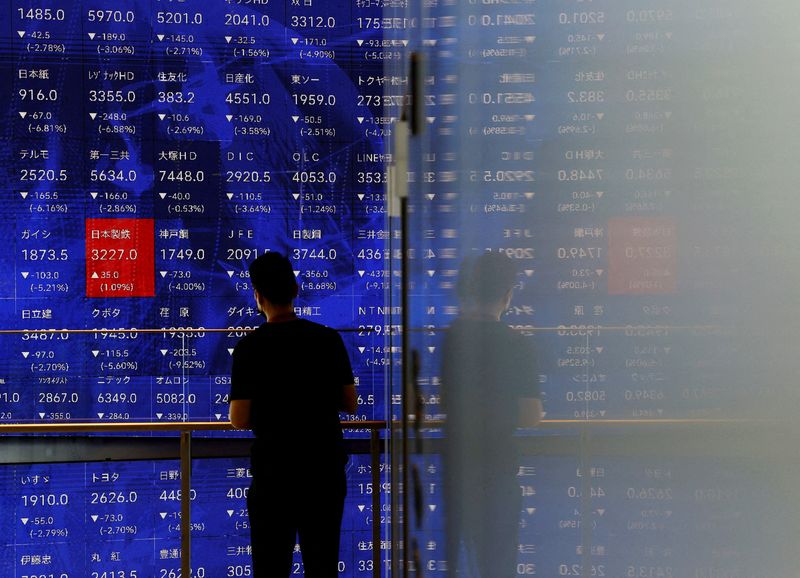(Reuters) – Foreign investors bought Japanese shares heavily in the week ended Aug. 10, buoyed by signs from policymakers that they were stabilizing the market after recent turmoil that sent shares to their biggest one-day drop since 1987.
Cross-border investors bought a net 521.9 billion yen ($3.51 billion) of Japanese stocks during the week, reversing a three-week streak of net selling, according to data from the finance ministry.
Last week, Japanese policymakers announced measures to prevent further declines in the stock market, while the Bank of Japan indicated it would keep rates steady despite market volatility, following a historic 12.4% decline in the stock market average on August 5, driven by fears of a U.S. recession and the end of carry trade financing with cheap yen.
But those worries quickly dissipated, with the Nikkei stock average rising more than 20 percent since hitting a nine-month low of 31,156.12 on Aug. 5.
Foreigners also reversed an eight-week sell-off in Japanese bonds last week, becoming net buyers. They bought a net 1.44 trillion yen in long-term bonds, the largest amount since May 11, and a net 561.8 billion yen in short-term securities.
Last week, Japanese investors bought 1.54 trillion yen worth of long-term foreign bonds, marking the largest weekly net purchase in 12 weeks, and also acquired a net total of 453.5 billion yen in short-term instruments.

Japanese investors, however, lost a net 328.1 billion yen worth of foreign stocks after three consecutive weeks of net buying.
($1 = 148.9000 yen)





